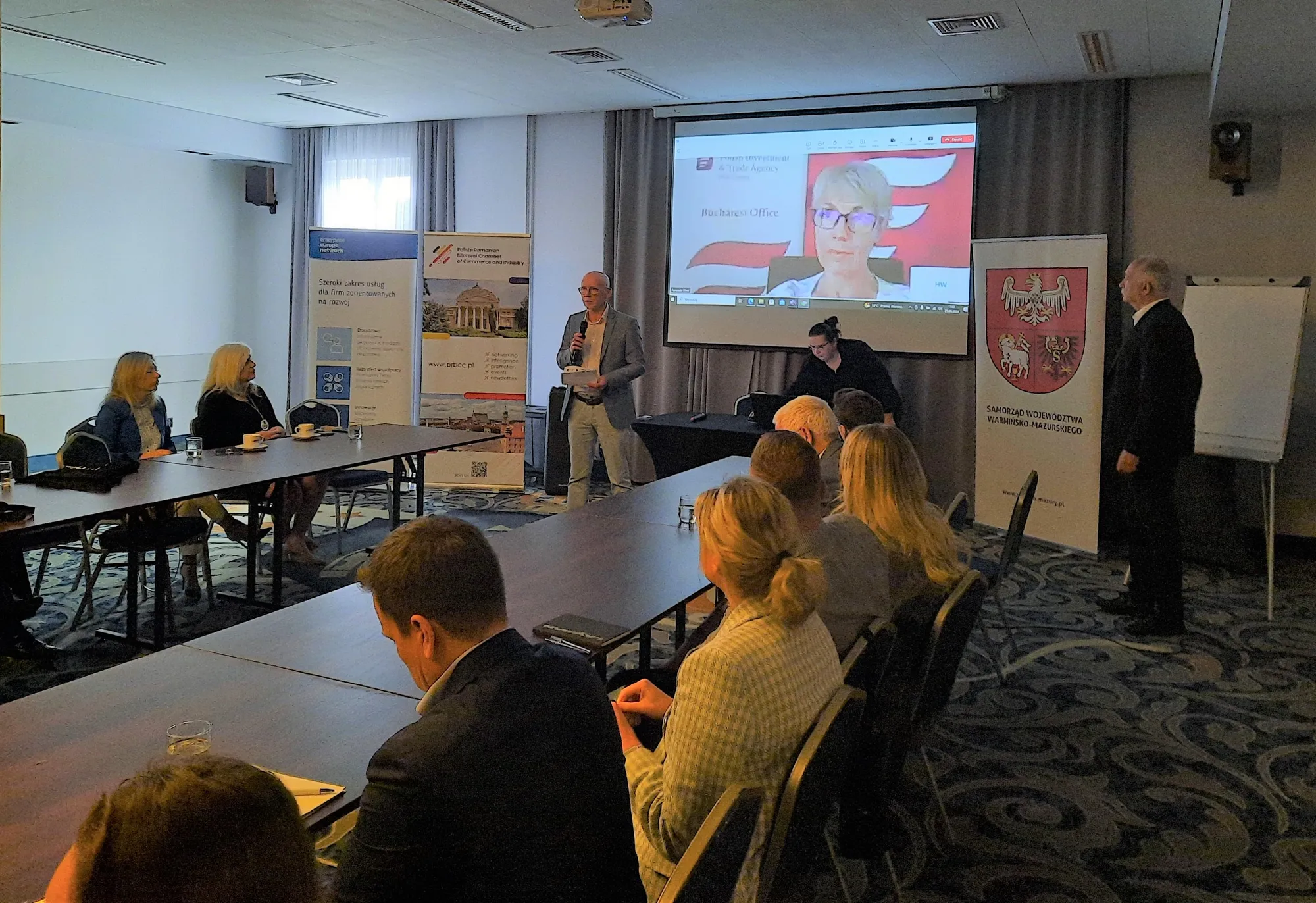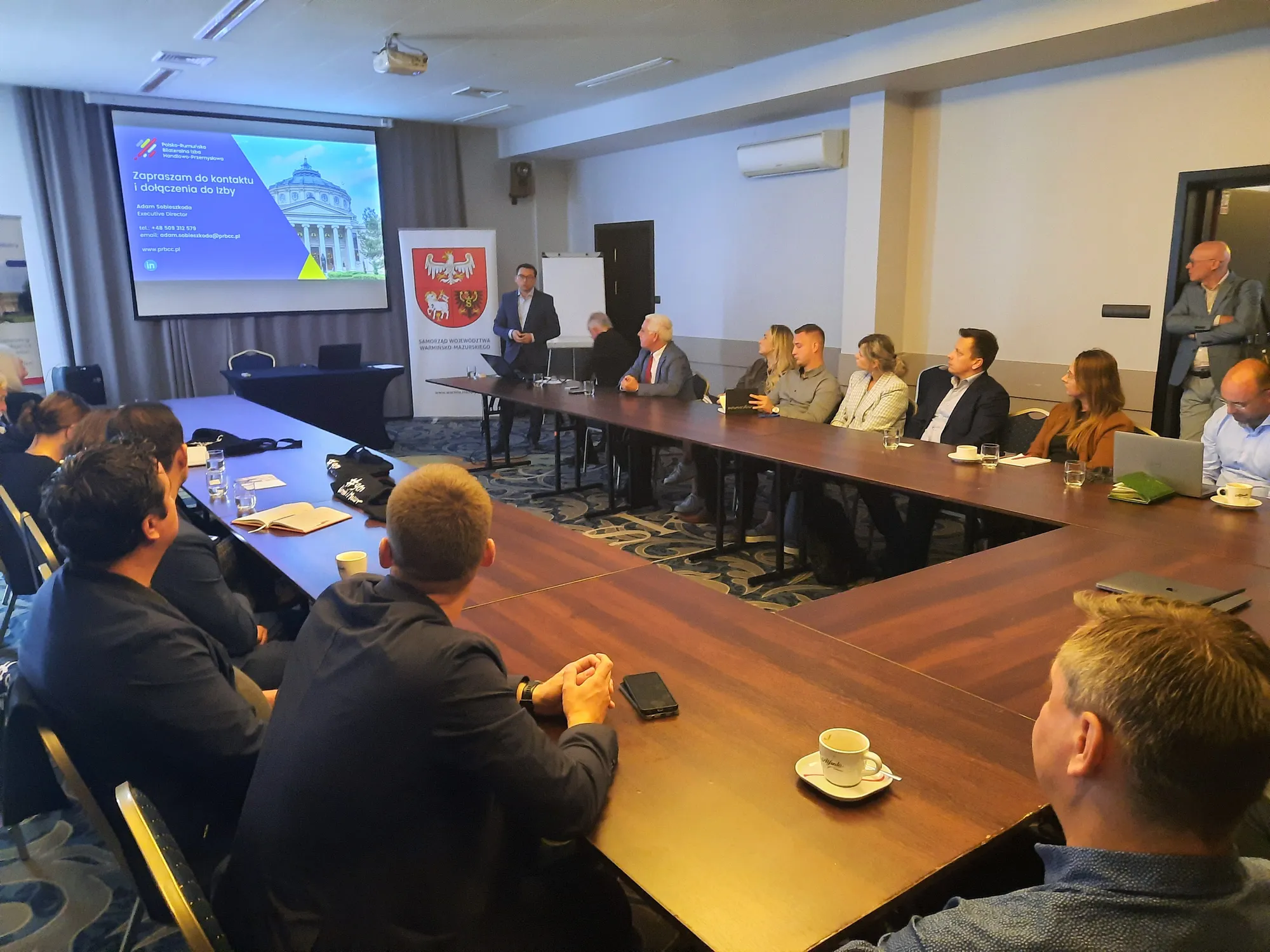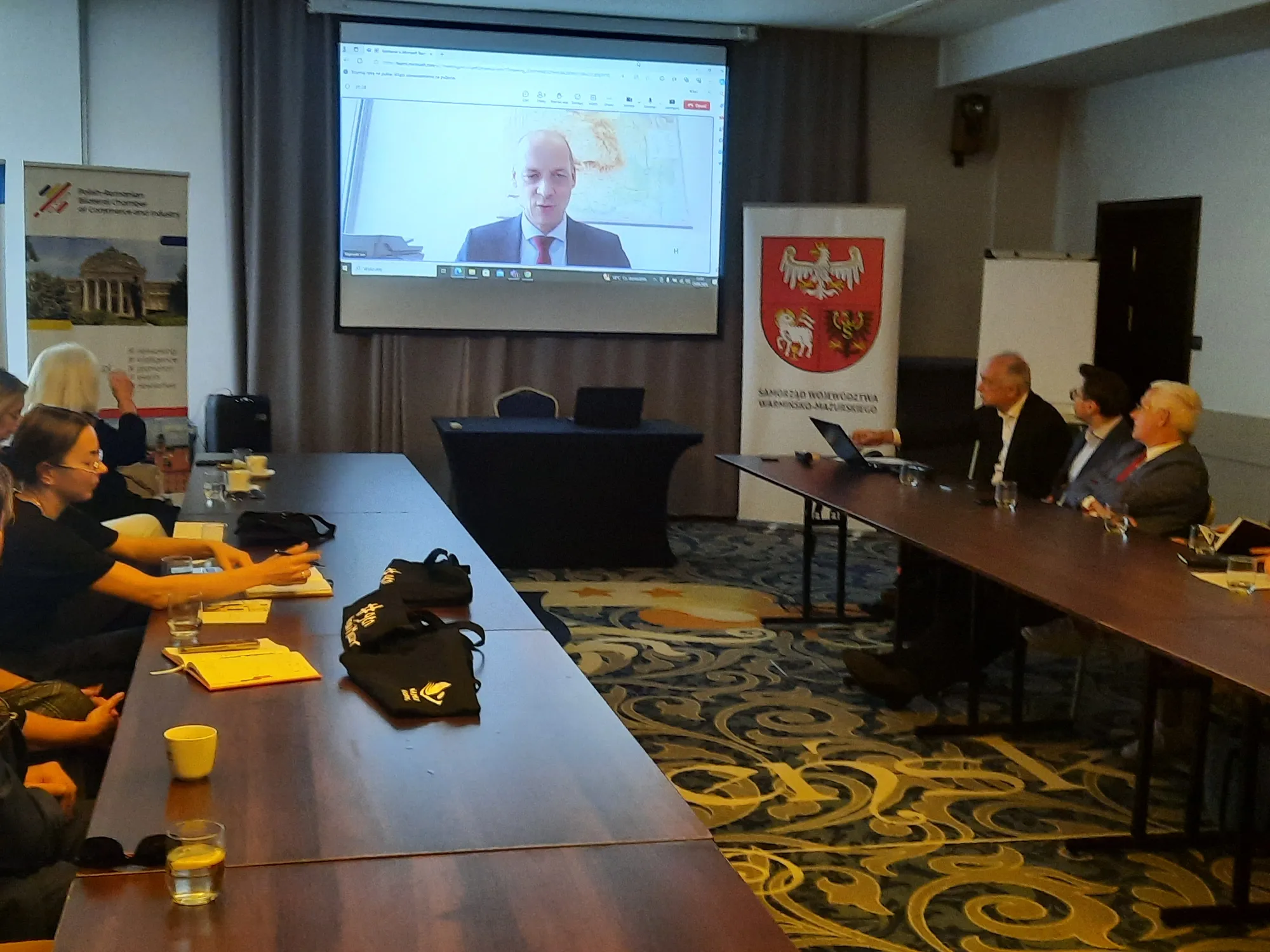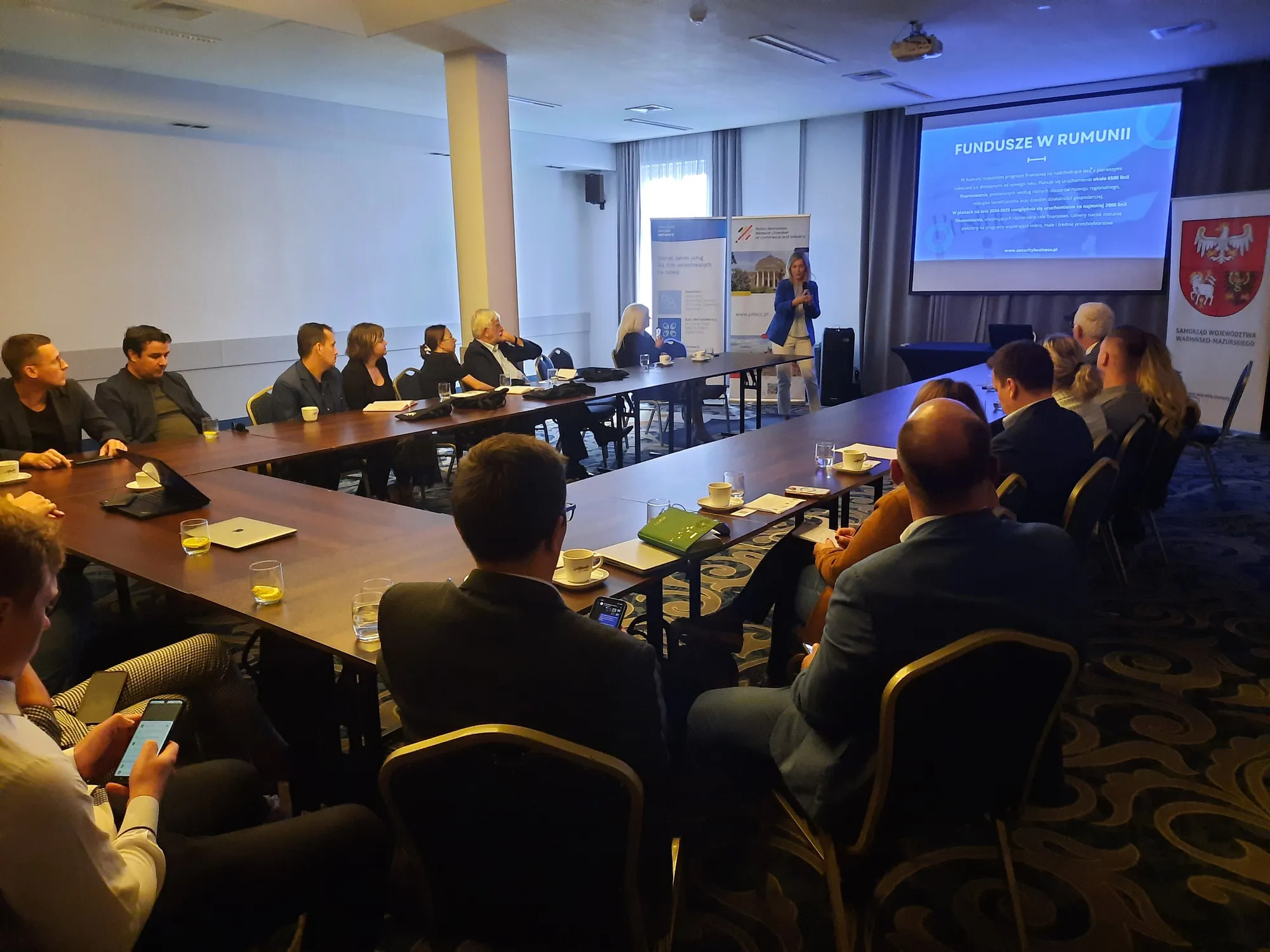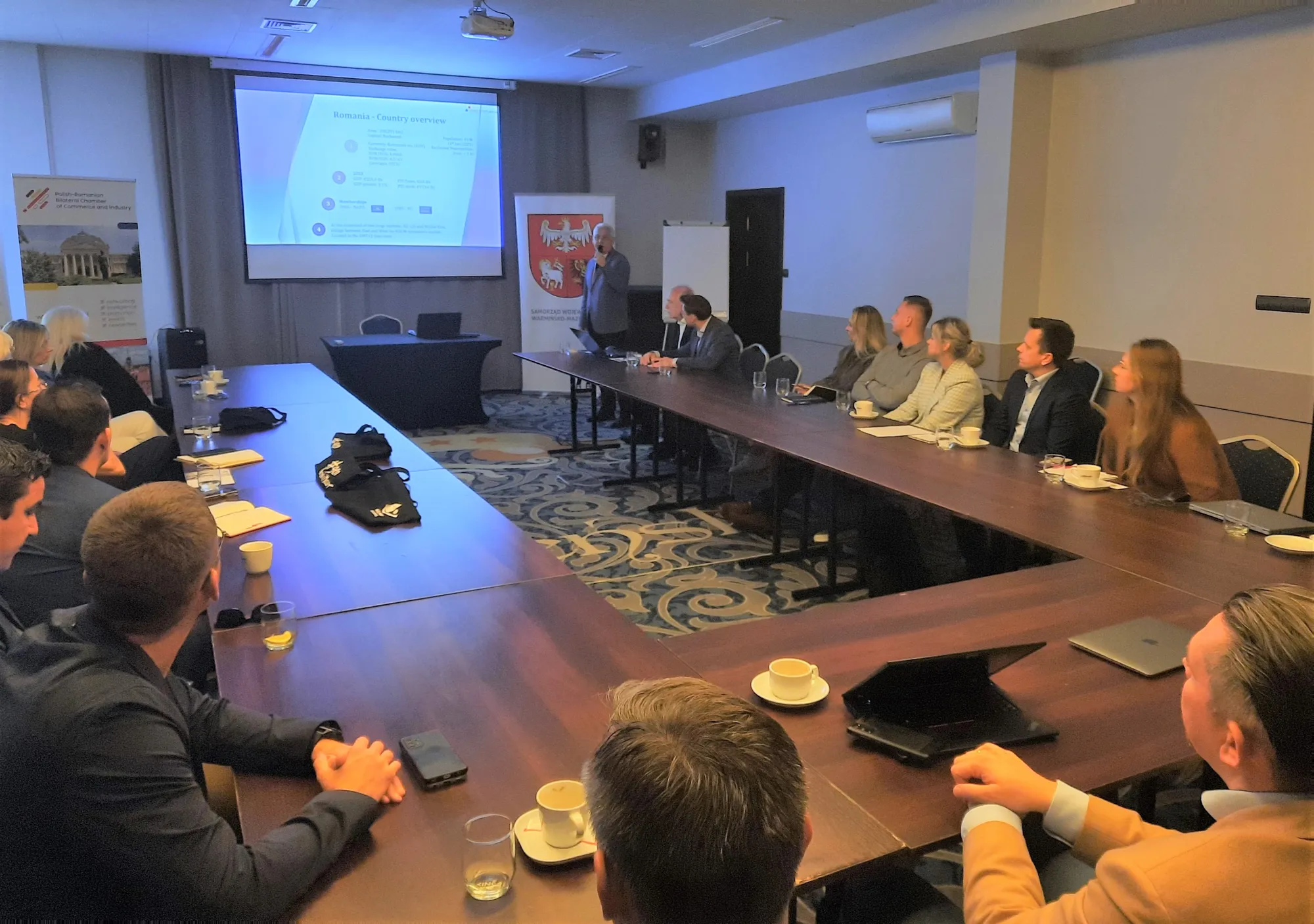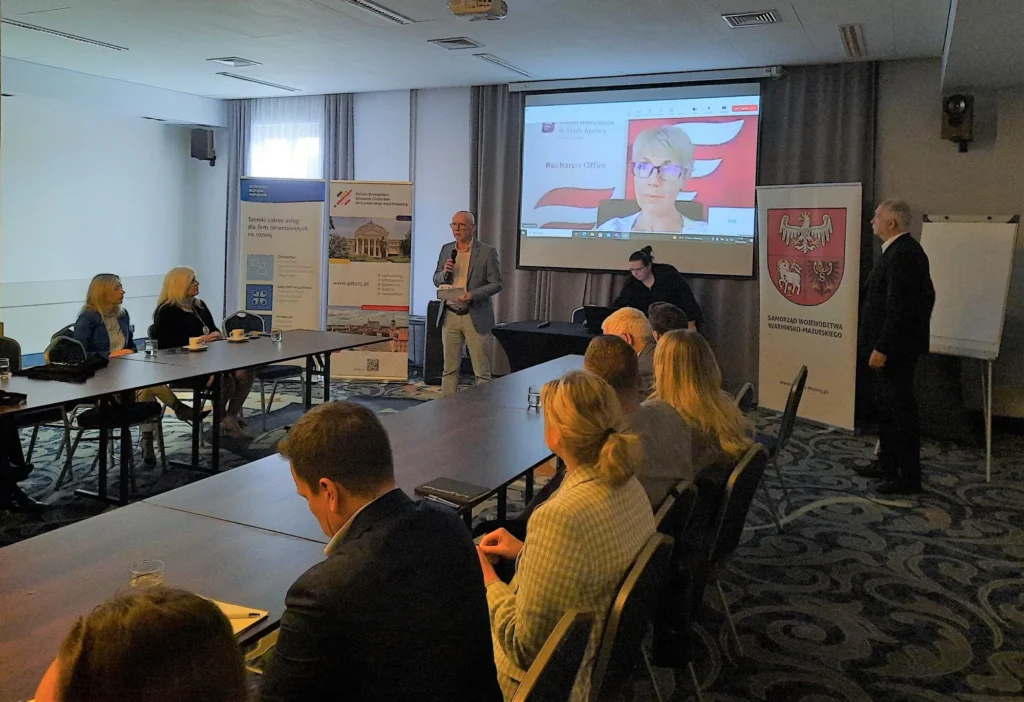On Wednesday, September 25, the seminar “Doing Business in Romania” was held in Olsztyn. Our Chamber together with The Marshal’s Office of the Warmian-Masurian Voivodeship and Warmia and Mazury Regional Development Agency (WMARR) was the organizer of the event intended for companies from the Warmian-Masurian Voivodeship.
During the seminar, participants learned about the business opportunities that the Romanian market offers for Polish companies. Speakers, who were Agnieszka Olsen from the Polish Investment and Trade Agency, Marcin Pondo from Consulting Hungary, Jan Majewski from PKO Bank Polski, Anita Bogusch from Security Business brought up the specifics of the Romanian market, the e-commerce segment in Romania, financing of foreign trade activities, transport from/to Romania, the offer of EU funds available to Polish companies in Romania.
Our Chamber was represented by Adam Sobieszkoda, who talked about the benefits of Chamber membership. The special guest of the seminar was Stefan Porojan, Minister counselor, Head of the Economic and Commercial Promotion Office of the Embassy of Romania in the Republic of Poland. In his presentation, he emphasized Romania’s investment attractiveness and access to an educated and skilled workforce.
The seminar in Olsztyn was another seminar that our Chamber co-organized to promote economic cooperation between Poland and Romania.
